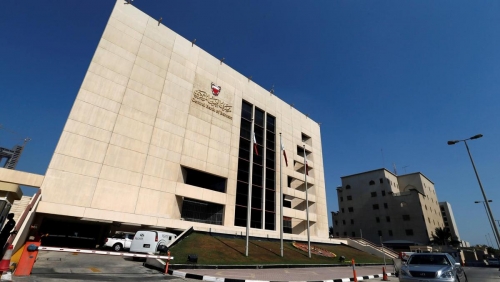Bahrain and other GCC central banks follow US Fed, hikes interest rates by 0.75%
TDT | Manama
The Daily Tribune – www.newsofbahrain.com
The Central banks of Bahrain, Saudi, the UAE and Oman raised their interest rates, moving in tandem with the US Federal Reserve’s hike. The Federal Reserve on Wednesday enacted its second consecutive 0.75 percentage point interest rate increase as it seeks to tamp down runaway inflation without creating a recession.
Kuwait was the first Gulf central bank to raise its key discount rate by 25bps to 2.5%. The Central Bank of Bahrain said it is raising its key policy interest rate on the one-week deposit facility from 2.50% to 3.25% as its currency is pegged to the dollar.
The CBB also raised the overnight deposit rate from 2.25% to 3.00%, the four-week deposit rate from 3.25% to 4.00% and the lending rates from 3.75% to 4.50%. The top bank said it continues to monitor global and local market developments closely in order to take any further necessary actions to maintain monetary and financial stability in the Kingdom.
Accordingly, the Central Bank of Oman increased its repo rate 75 basis points (bps) to 3%, a statement from the top bank said. The Central Bank of the United Arab Emirates said it was hiking its base rate by three quarters of a percentage point to 2.4% effective from Thursday.
The bank said it would maintain the rate on borrowing short-term liquidity from the CBUAE through all standing credit facilities at 50 basis points above the base rate. The Saudi Central Bank also raised its key interest rates by 75 basis points, moving in tandem with the US Federal Reserve's hike.
The Saudi Central Bank, also known as SAMA, lifted its repo and reverse repo rates by 75 bps to 3% and 2.5%, respectively. Stringent actions In taking the benchmark overnight borrowing rate up to a range of 2.25%-2.5%, the moves in June and July represent the most stringent consecutive action since the Fed began using the overnight funds’ rate as the principal tool of monetary policy in the early 1990s.
Fed Chair Jerome Powell said the Fed is “strongly committed” to reducing inflation and said that could come with a cost to general economic growth and the labour market in particular.
“We think it is necessary to have growth slow down. Growth is going to be slowing down this year for a couple of reasons,” he said. The economy, he added, probably will grow below its long-run trend for a period of time. “We actually think we need a period of growth below potential in order to create some slack.”
Related Posts

